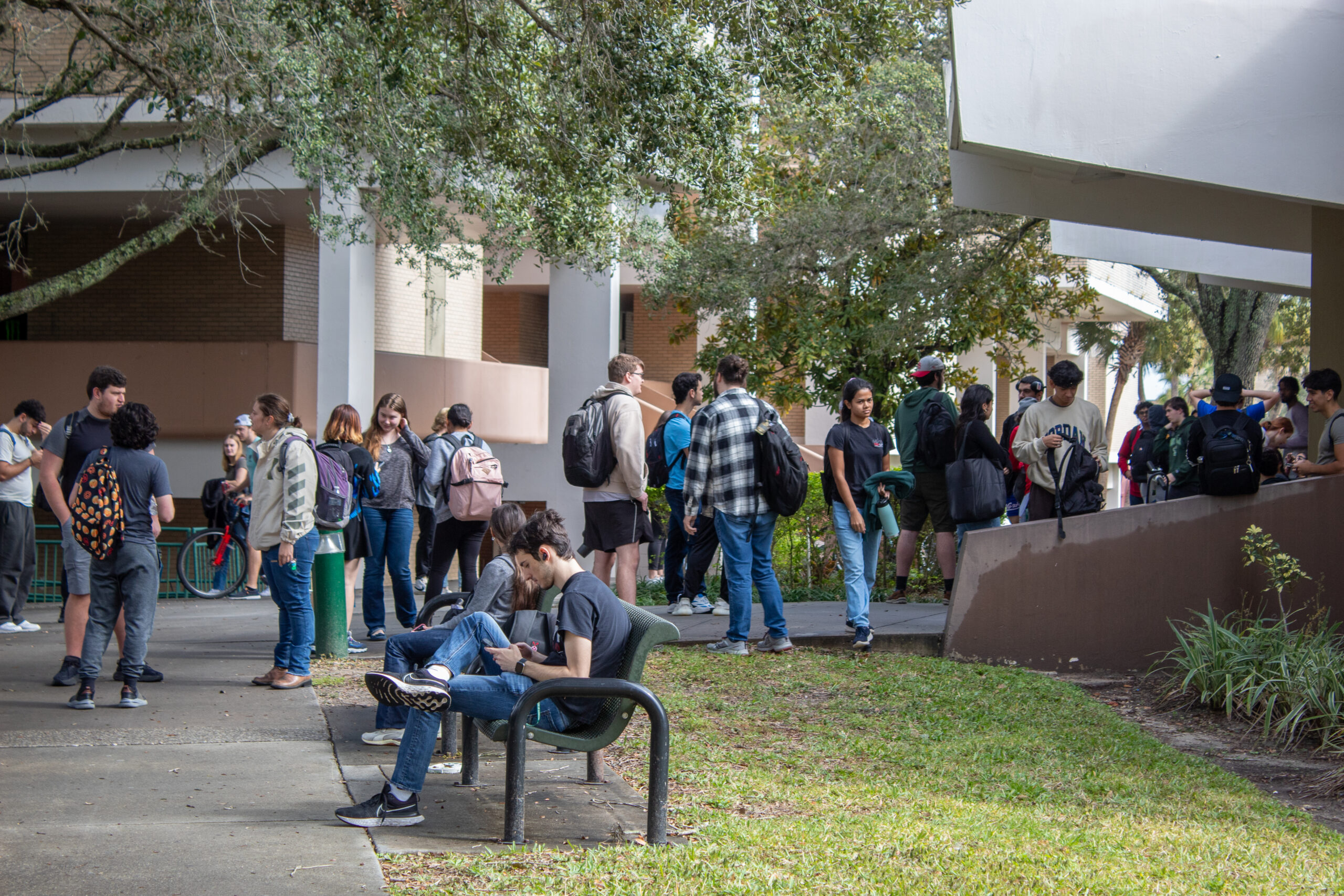USF profs condemn order to review courses for antisemitism

USF professors are concerned over academic freedom as the state orders university courses to be reviewed for antisemitism.
In August, Ray Rodrigues, the State University System chancellor, tasked university presidents to create committees to check curriculum for anti-Israel bias.
The order came after a Florida International University exam question was deemed antisemitic, Rodrigues said in an interview with the Miami Herald.
USF history professor David Johnson said the faculty have reserved opinions about this review, worrying it may impinge on academic freedom.
“It’s clearly an infringement on academic freedom, really a witch hunt,” Johnson said. “And it shows disrespect for faculty members who were chosen because of their expertise and trusted to choose materials and basically saying they can’t be trusted.”
Course descriptions and syllabi with the words “Israel,” “Israeli,” “Palestine,” “Palestinian,” “Middle East,” “Zionism,” “Zionist,” “Judaism,” “Jewish” or “Jews” will be reviewed.
Related: Several Protestors Arrested during pro-Palestine encampment protest
Upon hearing about the order, Johnson said he was reminded of Cold War-era Florida legislation demanding an investigation of “communism and communist indoctrination.”
The Johns Committee, formally known as the Florida Legislative Investigation Committee, interrogated Florida public university students and staff about if they harbored communist and/or homosexual beliefs during the 1950s and 60s.
“And at that time, the President of USF, John Allen, stood up to the Johns committee and said, ‘A college is not engaged in making ideas safe for students. It is engaged in making students safe for ideas,’” Johnson said.
Johnson said the USF administration should use John Allen as a model when tasked with carrying out the Florida government’s orders.
“They should stand up for academic freedom and not simply figure out how best to comply with orders that are clearly violations of academic freedom,” Johnson said.
Related: Trouble following USF divestment debate updates? Here’s what to know.
The university is currently reviewing the request in response to the board of governor’s guidelines, according to a USF spokesperson.
David Simmons, faculty senate president, discussed the implications of the order during a Sept. 10 Board of Trustees meeting. He said it wasn’t “the way to fight antisemitism in Florida.”
“What we have here is a policy that’s intended to combat antisemitism, but potentially does the opposite,” Simmons said.
The Association for Jewish Studies sent a letter to the Board of Governors asking that it reconsider the order. The letter said the policy places an “undue burden” on Jewish students and faculty, which may affect the courses in the future.
Related: ‘We are scared’: Jewish students feel unsafe amid Israel-Palestine conflict
To Johnson, academic freedom means “that the state can’t tell the faculty what they can and cannot teach.”
“Faculty members are their own entities,” Johnson said. “They’re not part of the government. It’s not their obligation to listen.”
Students should be taught to identify antisemitism rather than remove it from the classroom altogether, Johnson said.
“It’s a fundamental misunderstanding about higher education,” Johnson said. “This also shows disrespect for the faculty and disrespect for the students.”
Fraser Ottanelli, who has been at USF’s history department since 1987, said if antisemitism is being investigated, then discrimination against other groups – such as anti-Muslim or anti-gay sentiment – should be looked into as well.
As someone who teaches immigration history, Ottanelli said he encounters many instances of racism, sexism, xenophobia and homophobia throughout U.S. history.
“So if we are really honest… then we should look at everything,” Ottanelli said.
Ottanelli said he will not change the content in his classes, regardless of the outcome of the review.
“If people want to review them, they’re welcome to do it,” Ottanelli said. “I am not going to change a thing in the process. My work is based on solid, verifiable research, and I’m not going to adjust my professionalism based on whatever the most recent fad may be.”







